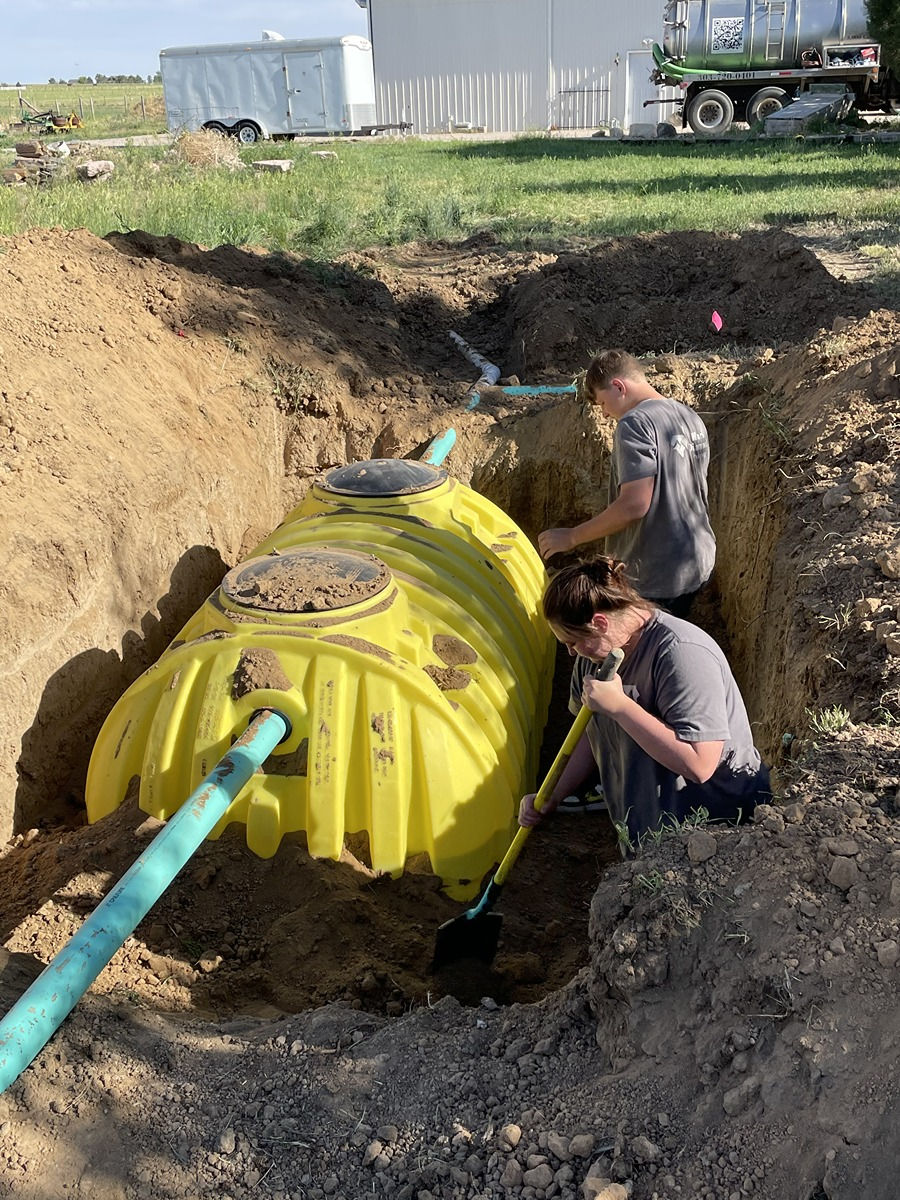Septic Tank Installations
- blackdiamondpumpin
- Apr 11, 2023
- 3 min read
Updated: Jun 27, 2023
When you consider all of the things that go into septic tank installation it is easy to see why installation should be handled by a professional. Our Northern Colorado septic company has years of experience with Colorado septic tank installations and can help you consider all of the important factors about your installation.
How much does it cost to have a septic tank installed?
There are many factors to consider when installing a septic tank the correct way and each can affect the cost of your installation. When having a septic tank installed the first thing to take into consideration is the size of your home. To install a septic tank properly there also needs to be good soil and a level site for installation. Another part to consider is the type of tank that needs to be chosen whether it is concrete, metal, fiberglass, or plastic-type material. Additionally, more technical things should be considered when installing a septic system like sanitary permits, drain gravel, excavation, piping, design, and labor.

Choosing the Right Septic Tank for Your Home
At Black Diamond Pumping, we understand the signs of a failing septic tank, and we can recommend a replacement that is right for your home and budget. We can also help install brand new systems by considering all the important factors involved in a proper installation. Here are a few things that should be considered:
The Size of Your Septic Tanks
It’s important that your septic tank is sized for your home. Standard sizes range from 750 to 1,500 gallons and the size should be selected based on the maximum number of people that can occupy the home based on the total number of bedrooms. If that tank is properly sized for your home, the tank should manage waste from the kitchen, laundry room and bathrooms.
The Type of Septic Tank
Another factor to consider when replacing or installing a new septic system is the type of septic tank that would be best for your home. Here are the 4 most common septic tank types to consider:

1. Concrete Tanks
These tanks are often considered the most durable option. However, the reliability of these tanks heavily relies on the quality of the concrete and the proper forming of the tank. Cracks are also common, even with high-quality concrete tanks.
2. Steel tanks
Surprisingly, steel septic tanks are considered on the low end of durability. Although the life expectancy of a steel tank is up to 25 years, many tanks fail sooner due to rust and cracks.
3. Plastic tanks
Unlike steel and concrete septic tanks, plastic tanks do not crack. However, plastic also weighs less, so these tanks can be easily damaged by the weight of surrounding soil and structures.
4. Aerobic tanks
For a high-efficiency septic tank, we recommend an aerobic tank. These tanks use electricity and generate higher levels of oxygen inside the tank to expedite waste processing. Although more efficient, aerobic tanks do require more maintenance than other types of tanks.

How Do I Know If I Need to Replace My Septic Tank?
When it’s time to replace your septic tank you will likely know based on the smell. However, it’s better to recognize the need for a replacement before the smell becomes too obvious. Septic tanks often give subtle signs of needing replacement and by recognizing these signs can save your time, money and avoid the horrible smell. Here are a few questions to consider:
1. Is the grass or vegetation around your septic tank lush and green?
If there is lush and green vegetation around your tank, then it is likely that the contents of your septic tank are seeping into the ground because human waste is a great fertilizer.
2. Are there any puddles around the septic tank?
If you notice any standing water in the area around your septic tank, the tank is likely backing up and should be addressed right away. Avoid the area, and call us immediately.
3. Are your drains and toilets backing up or running slow?
Having slow drains or even backups inside your house can be a major sign of serious problems with your sewer system, including the septic tank. If you are having any issues with your drains or toilets, call us as soon as possible to take a look at your septic system before the problems get worse.
Expert Colorado-based Septic Tank Installers
It's important that the installation or replacement of a septic system is handled by professionals because it requires regulatory permits, heavy equipment, expertise in plumbing and environmental issues, and an accurate process. Our Colorado septic company ensures that all the septic tanks we install are well-designed and functional. Using our extensive expertise and experience, our process is designed to guarantee a long-lasting septic system. Located in Fort Lupton, CO, our family-owned septic company can help customers with septic tank installations in Weld County, Adams County, and the surrounding areas along the Front Range. Contact us today for a free septic installation quote.





Comments